White innocence: fighting racism in the Netherlands
- 19.12.2017
- 26668
Protesting against racism in the Netherlands, the home-country of the liberalism? Joris Hanse, activist of the “Doorbraak” group, is telling us why and how to fight capitalism, patriarchy, and racism.
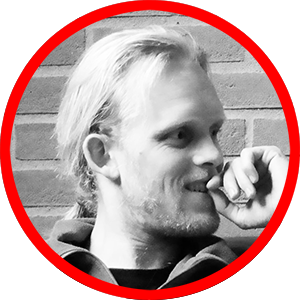
Who we talk to?
Joris Hanse is a student, for about seven years participating in the work of the Doorbraak (“breakthrough”). The Doorbraak is an activists group, calling themselves “a basic organization against capitalism, patriarchy and racism”. They are fighting “for more equality and freedom on all fronts”. Doorbraak “is a part of a broad tradition of struggle and solidarity from below, which in all its diversity has existed throughout the ages and in all continents.”
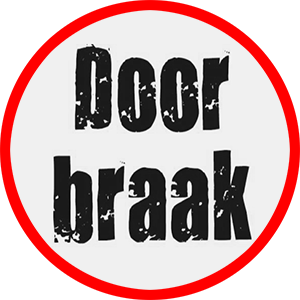
What they fight?
They fight for equality and freedom on all fronts. Doorbraak is a part of the “from below” tradition of fighting and solidarity. They work with people for whom the protests are being organized. This in order to find out what these people really do want and need. Among other social problems, the Doorbraak activists fight racism and forced labor, since in the Netherlands people on welfare are often legally forced to do unpaid work.
The Doorbraak is also protesting for the extirpation of the traditional Dutch 5th December character – the Black Pete (typical Dutch sort of Santa). Characteristic signs of a Black Pete are black or brown painted face, short wide trousers and a beret with a feather. In 2013, despite the value of the tradition, the UN stated it has racist features.
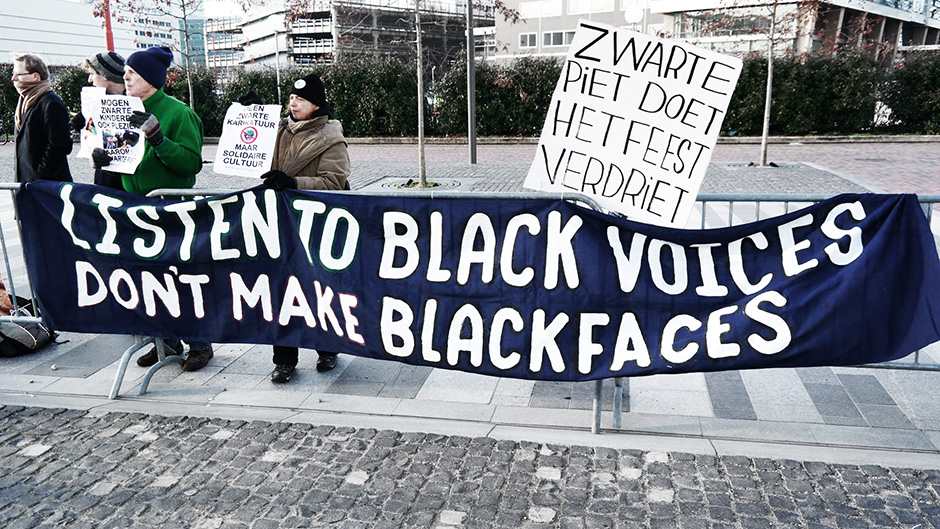
– How long does the Doorbraak exist, and how did it begin?
– The Doorbraak exists since 2007, and has emerged from two groups. The one was De Fabel van de illegaal, active since the 1990. The name means “the fable of the illegal”. De Fabel helps people without documents, who need assistance with their residence permit and medical-related problems. The group follows the “from below” principle, for one cannot organize things against racism while being an all white group.
Another group was a group of young Turkish people, called “Aksi” (means “opposite”, “contrary”). They are mostly the second or third generation migrants from Turkey. Their parents have come to the Netherlands as workers, and those young people forming “Aksi” came mostly out leftist families. Those families were still very busy with the Turkish agenda. So the “Aksi” youth was willing to do something serious right in the Netherlands, to step out of that Turkish “ghetto”.
The two groups have met each other around the “integration duty”: nobody was happy with the requirements the Netherlands have for the newcomers, that you have to learn all kinds of useless shit and are constantly being controlled by the authorities.
The name “Doorbraak” is first of all about breaking out of your own social comfort zone. Letting people to break through, to reach out for each other and start fighting together against racism, patriarchy, capitalism – for something better.
«If there’s no justice for everybody, then it’s no justice for anybody»
– For a dummy, how are those things (racism, patriarchy, capitalism) are even connected?
– You ask me to describe, like, the whole world! Let’s put it that way: when you look at how the capitalism was developing throughout the history, you see that the modern form of capitalism was the reason, but also the result of the Western colonialism. Western nations went overseas, and racism was by design a part of this system. They went to colonize to gain more territory for their markets, to get the economy developed. And if you are to colonize anything, you will have to kill a lot of people, and to do it effectively. In such situation you have to hate them, you have to stop thinking they are humans, too.
Then the patriarchy. It is much older, and it was also often used by capitalism to profit from exploiting women. In this sense you can hardly analyze those forms of oppression apart from each other, they are very much triggered and supported by one another.
Also, if you only take one form of oppression, and concentrate on fighting it, you will face serious problems: if you fight racism, but not the patriarchy, then what? Black men will be able to emancipate, and black women not? That doesn’t make any sense.
There was a slogan about that: if there’s no justice for everybody, then it’s no justice for anybody. If only some people can be free, it means what kind of freedom is it? A very hypocrite freedom, I guess.
– Or you just did not reach it yet?
Of course, we do not expect things to change all at once. But you have to take care you are not busy with the rights of one group by oppressing another group.
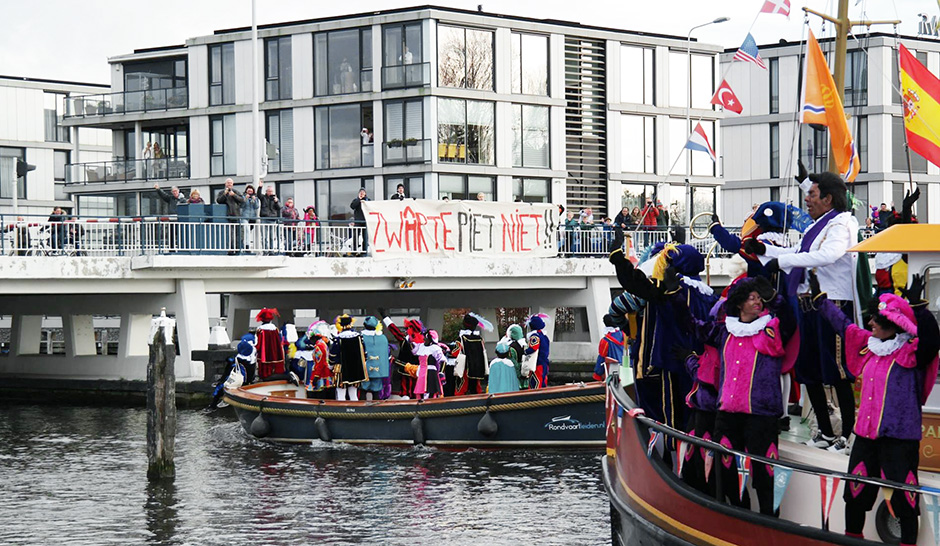
«Black men will be able to emancipate, and black women not? That doesn’t make any sense»
Blackface-tradition of The Black Pete
– You are an activist group. How does that work, what do you do?
We don’t have any standardized action model. Our overarching principle is to always organize from below. Whatever we do, we want to do it with the people whom it concerns. You do something against racism – you have to organize with the people of color. We work with the problems of people on social welfare – we organize with those among us who have this welfare. We do not want to talk about people behind their back. It makes no sense to fight for someone if they are not there. People really do know best what their problems are. We don’t have to decide it for them.
And what we do exactly depends on what we’re protesting against. In fight against the Black Pete it is, indeed, demonstrating a lot, for it is effective, especial around Saint Nicholas day.
But we also often turn to the institutions: the ombudspeople, the college for human rights, name it. We try to engage formal procedures so that the institutions make statements we can work with. We try to give practical help to people. For example if a person needs to visit some social service, we can go together with them, provide information, link them to somebody who can help. We do try to work on different levels.
– It’s often thought that the Netherlands is very emancipated, tolerant to literally everyone. And still you see that Netherlanders are so attached to certain racist stereotypes and traditions. Take that example with the Black Pete, there are a lot of people who don’t want to drop it, even if they know they make others unhappy. How’s that?
– Many people here have this self-image: we are not racist, we are not sexist, we are emancipated, we are leading the way in these issues. But it’s not that simple. An academic, Gloria Wekker, described it in ther book called “White innocence”, and concluded that the reality is not always matching this image. The book is about that we cannot see our own colonial history, we don’t want to face it, and we do deny it at some point.
Wekker writes: the Netherlands has been a colonialist for 400 years, for 400 years the Netherlands were exploiting people, making them slaves, killing them, and explaining all that with racist ideas. Our colonies got rid of us about half a century ago. So if you’ve been racist for 400 years, how can you abandon these ideas in only 50 years? That’s impossible.
The problem is a bit that the white Dutch people have this image of themselves not being racist. When you say to them: “But of course you are, here, you’ve got this blackface tradition of the Black Pete, we do ethnic-profile people, people of color are less fortunate in getting jobs, all kinds of shit is there!”, and you name these problems by the word “racism”, – white Dutch people tend to react very offended. They say, no way. Because of this denial, it’s sometimes very difficult to point out the problem at all.
– So the white people feel what, insulted by your actions? After all, you want to take away their dear good old tradition. Is that okay to you to say, well, the emotions of these white people do not matter?
– Of course there are people saying we are too radical, with the demonstrations and stuff. In the Netherlands, the Black Pete has been discussed as an insulting tradition for like 70 years. For a long time, white people were able to ignore these voices. Recently, the resistance grew and more people got involved, more demonstration and other actions were organized. And right now the movement against Black Pete cannot be ignored anymore, we start to see some change.
We have to communicate what’s happening, have to confront, otherwise there will be no change, no processes developing further. I don’t think it’s important that it hurts a couple of white guys. It’s cool when white people fight for anti-racist ideals! It is very important. But they have to give the people of color the possibility to decide what this fight is for. They know what racism is, they can define the problems, not we.
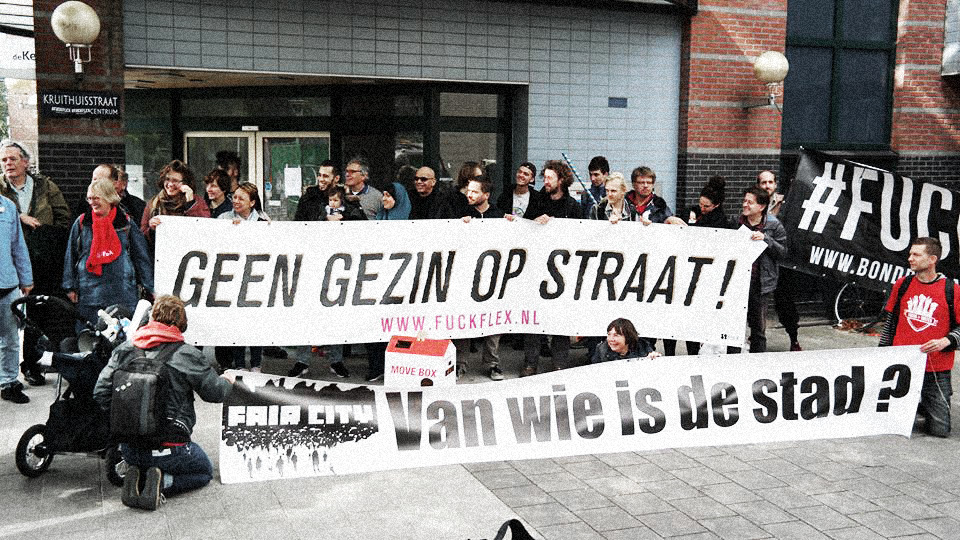
– What are the goals and the plans of the Doorbraak?
– It is important for us to be a part of a social movement that is getting bigger and bigger. We love to see there are more and more people interested in the same things.
That the Black Pete tradition will disappear – I believe, it’s already happening. And I’d love to see more groups coming to do something against racism, ethnic profiling, discrimination on the work floor.
«We’ve got a sort of a communist ideal: “From each according to their ability, to each according to their needs”»
As for the long-run, it’s more about the huge goals, like, no more capitalism, fall of the patriarchy, no racism. But this is more far away of course. Yeah, we think much more about how exactly we are to get to that point.
Our ideal is the world for everybody, kind of communist ideal of “From each according to their ability, to each according to their needs”. It’s important for us that people can live in peace with each other, be valued, treated equally, be in harmony with the nature (thus, ecology is important, too). We try to handle according to those ideals within our organization: to support each other, to be solidary, to take care the relations are balanced.
– Is there any role the parliamentary politics can play in your struggle? Or do you expect nothing from them? Do you ever hope that the politics help you, or is it more them rebuffing your work?
– Well, I think, for very long it’s been just working counterproductive, from the political side. Take these discussions about the Black Pete. Years long have the politicians said nothing about it, or said that it’s an important tradition that has to be preserved. There was no political party that would say “That’s right, that’s some bullshit”. At the best, some politicians who’ve spoke independently for themselves. So till now we didn’t want or ask anything from the politicians.
Now it changes a bit, but it changes thanks to the pressure from below. That the politicians are now having interest in this discussion, is a result of the people who have nothing to do with politics fighting for years. Because of the social importance of the discussion, the politicians began to see this theme as one of those which help them to gain more support – and in this sense I am very skeptical. Initiative lies certainly not by the political parties, but by the people who fight. And it’s minimal, what the politics does and says.
– What are the visible results of your work by now?
– It is very important to say that we are just a small organization, and the work we do is only a small part of the anti-racist movement in the Netherlands. It’s not that it’s only our struggle. If you look at the whole Black Pete thing, you see there are more and more people thinking this tradition is not okay. Couple of years ago, there were 90% of the Dutch who wanted to save this tradition. Now, there are about 65%. For a couple of years, that’s a big change. If it goes like this, over 3 years the half of the people here will go for no more Black Pete. So we see that this big change is made partly by us.
«If you’ve been racist for 400 years, how can you abandon these ideas in only 50 years?»
And if you look at anti-racist actions in general, you see that with this latest wave of anti-racism demonstrations there are serious changes happened, a lot of themes come to discussion. There will be a lot of other things talked over: slavery past of the country, colonialism (and the decolonization in our culture, in our education, in our museums), discrimination on the work floor. Those discussions are also to be done, and thanks to the Black Pete debate, it is happening more and more. This is what we have done.
Read more:
LoveSun: як эмэнэснік выдаўцом стаў
Лёша Кавальчук – пра тое, як рабіць гарадскі блог Светлагорска ў перапынках паміж пажарамі.
Барахолкі Лондана
34travel метэорам праляцеў па самых экзатычных і маднявых флімаркетах Лондана.
TeenStart: «Надо заставить человека пойти тусоваться не на "Галерею", а на лекцию»
Как делать свои социально-бизнесовые проекты в 16?
On main page:
Maria Gulina: art management from eco-art to socially engaged practice
A journey from local environmental workshops to art management and working with socially engaged photography in an international gallery.
Emil Zenko: "It's satisfying to learn that someone bought your vinyl without having a record player"
The conversation about filming in a Belarusian village, the kitchen of ideas and the search for funds.
Timeline: How Belarus (Doesn’t) Fight Domestic Violence
A story about (or no) cooperation between government representatives, NGOs and ordinary people that care.
Why are gay people being detained in Azerbaijan?
Javid Nabiyev speaks on arrests of gay people in Azerbaijan, explains the «fucking solidarity» term and the point of activism.
Strike of Polish women: my body, my choice
The founder of the movement against the ban on abortion Marta Lempart speaks how the Polish protests became successful.